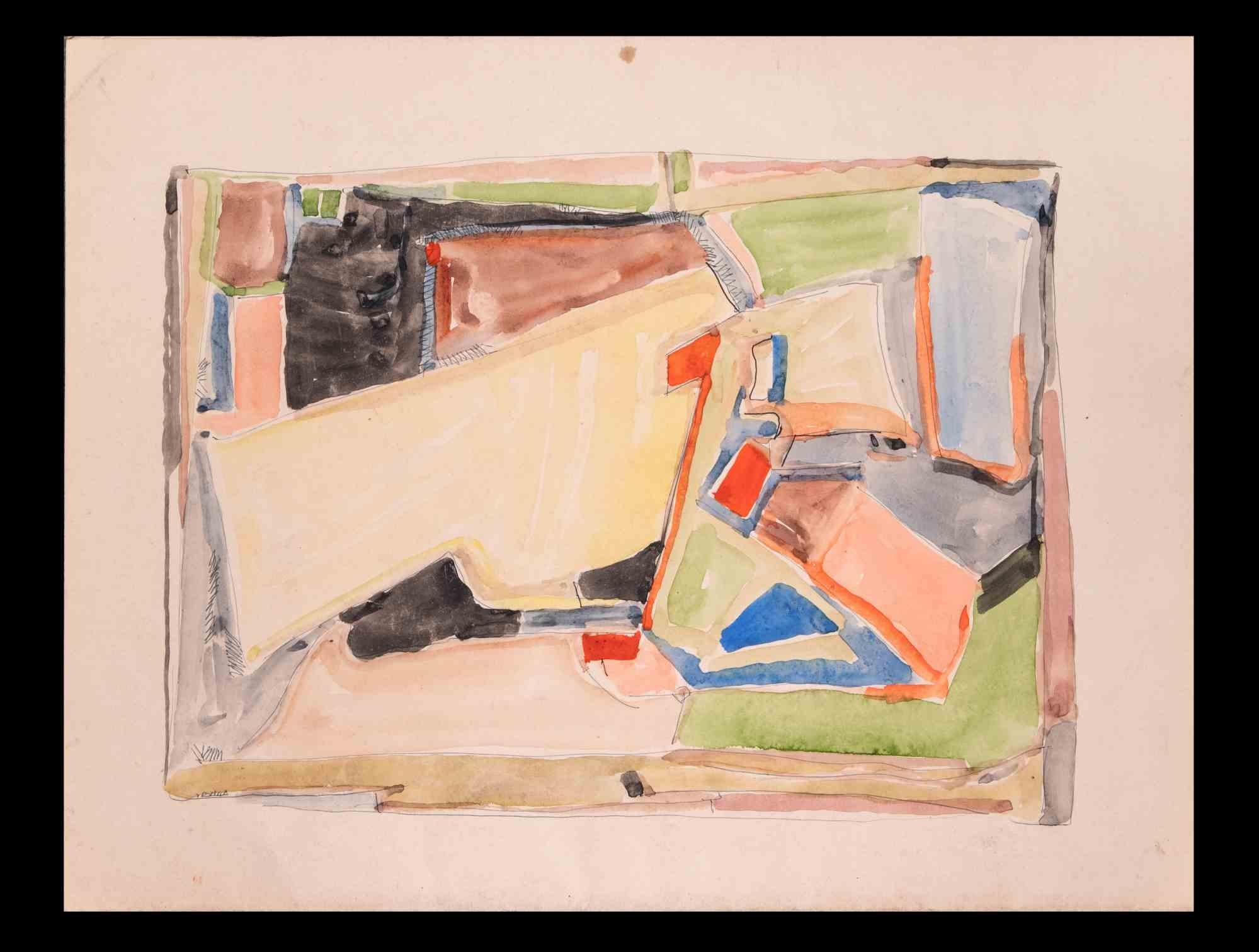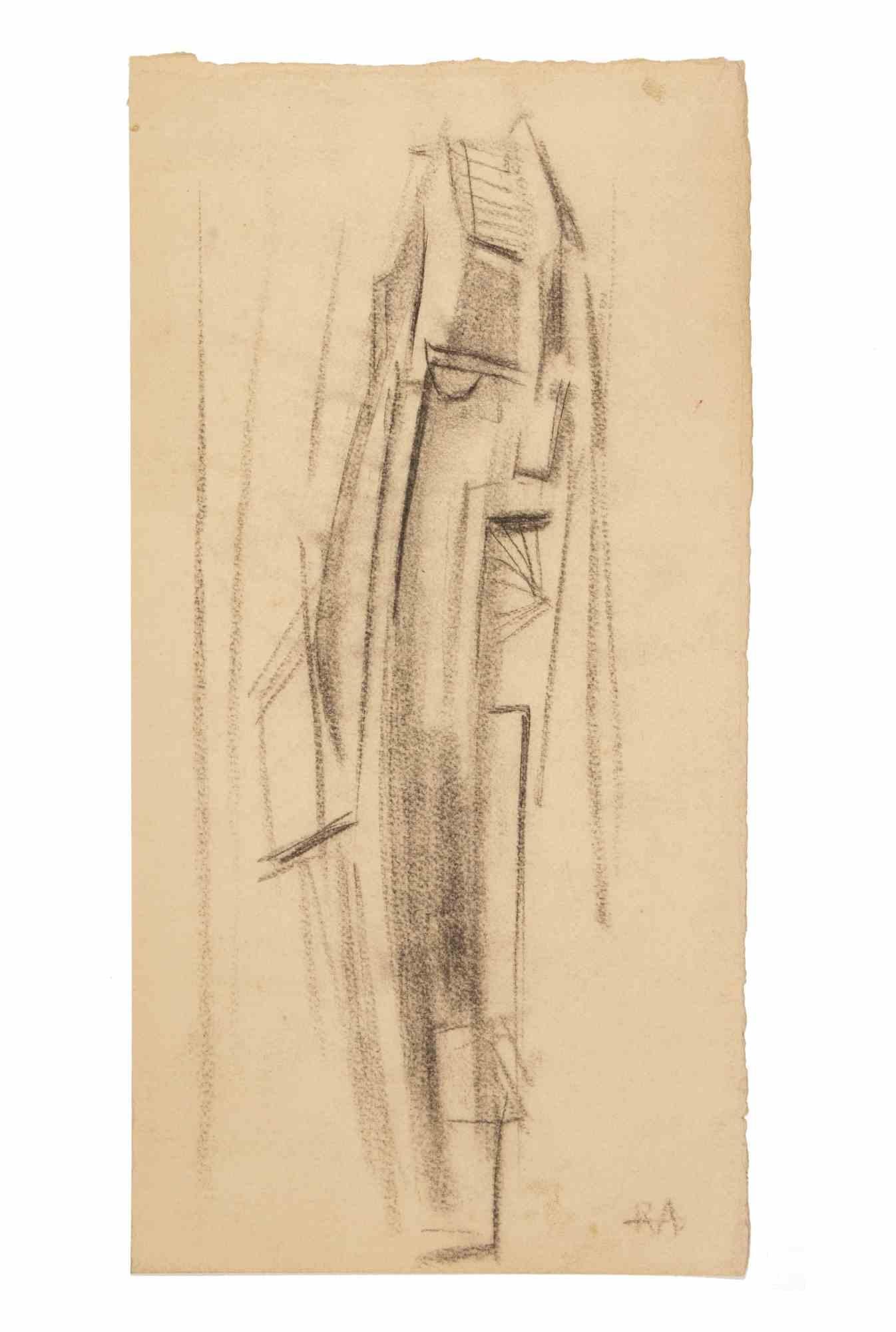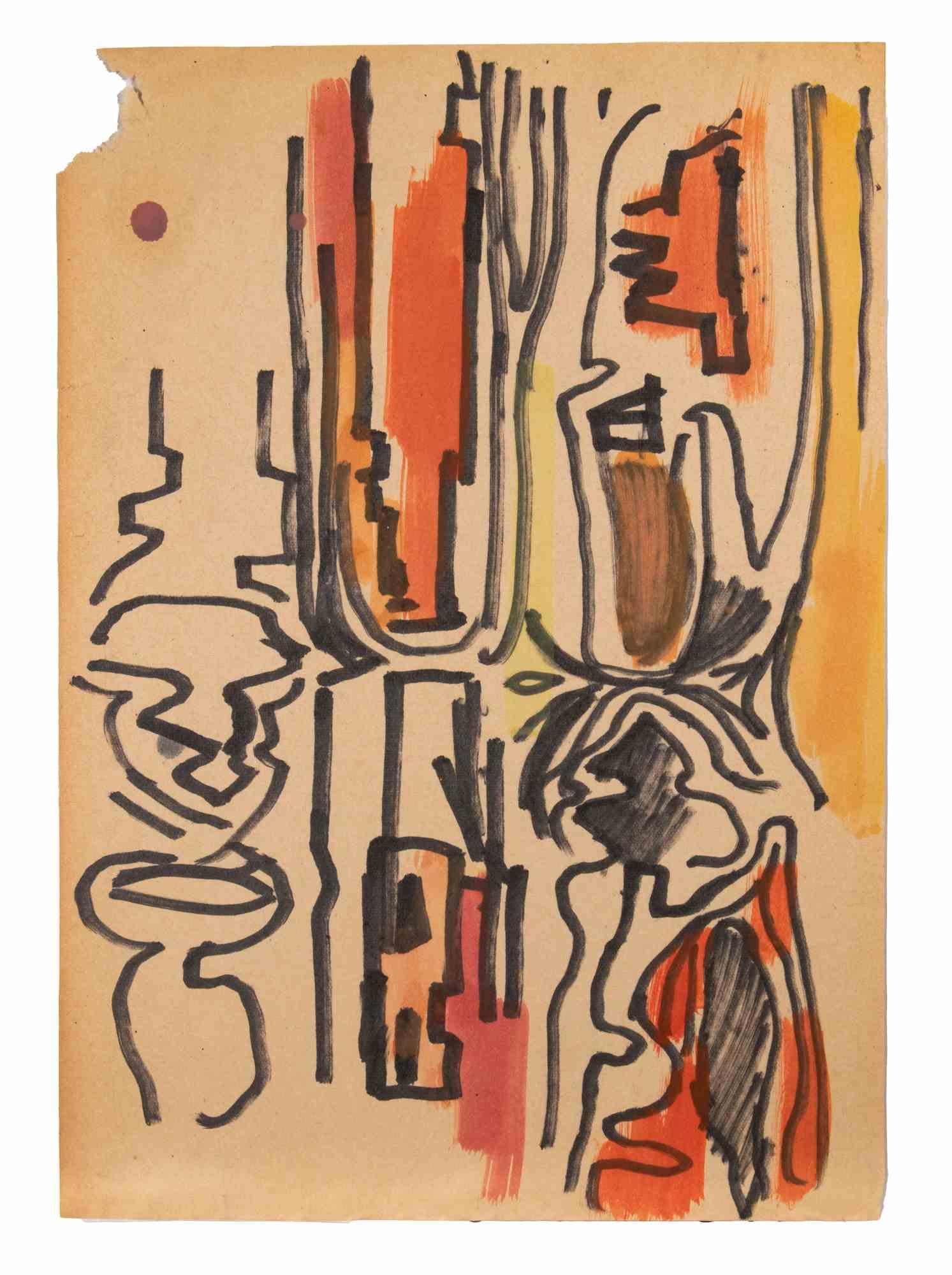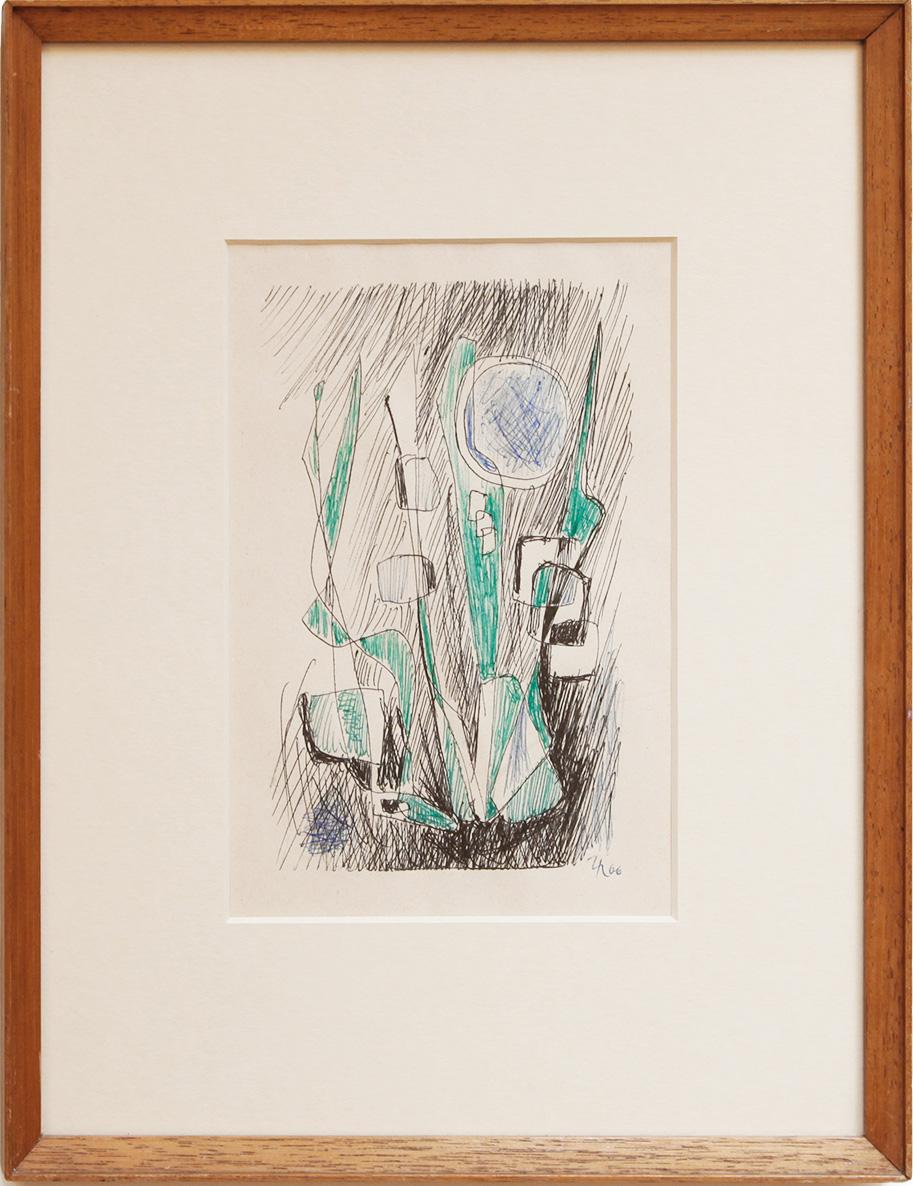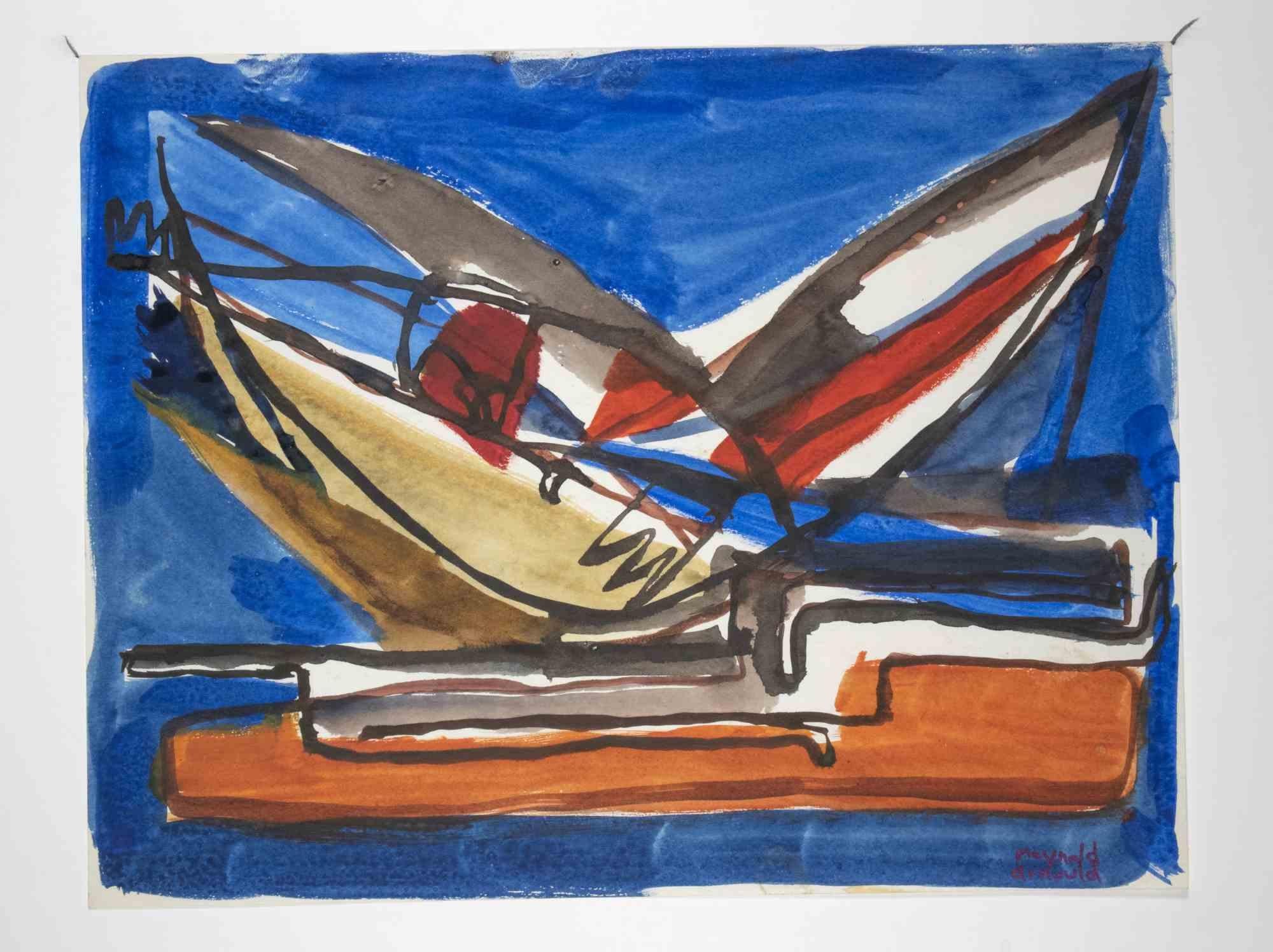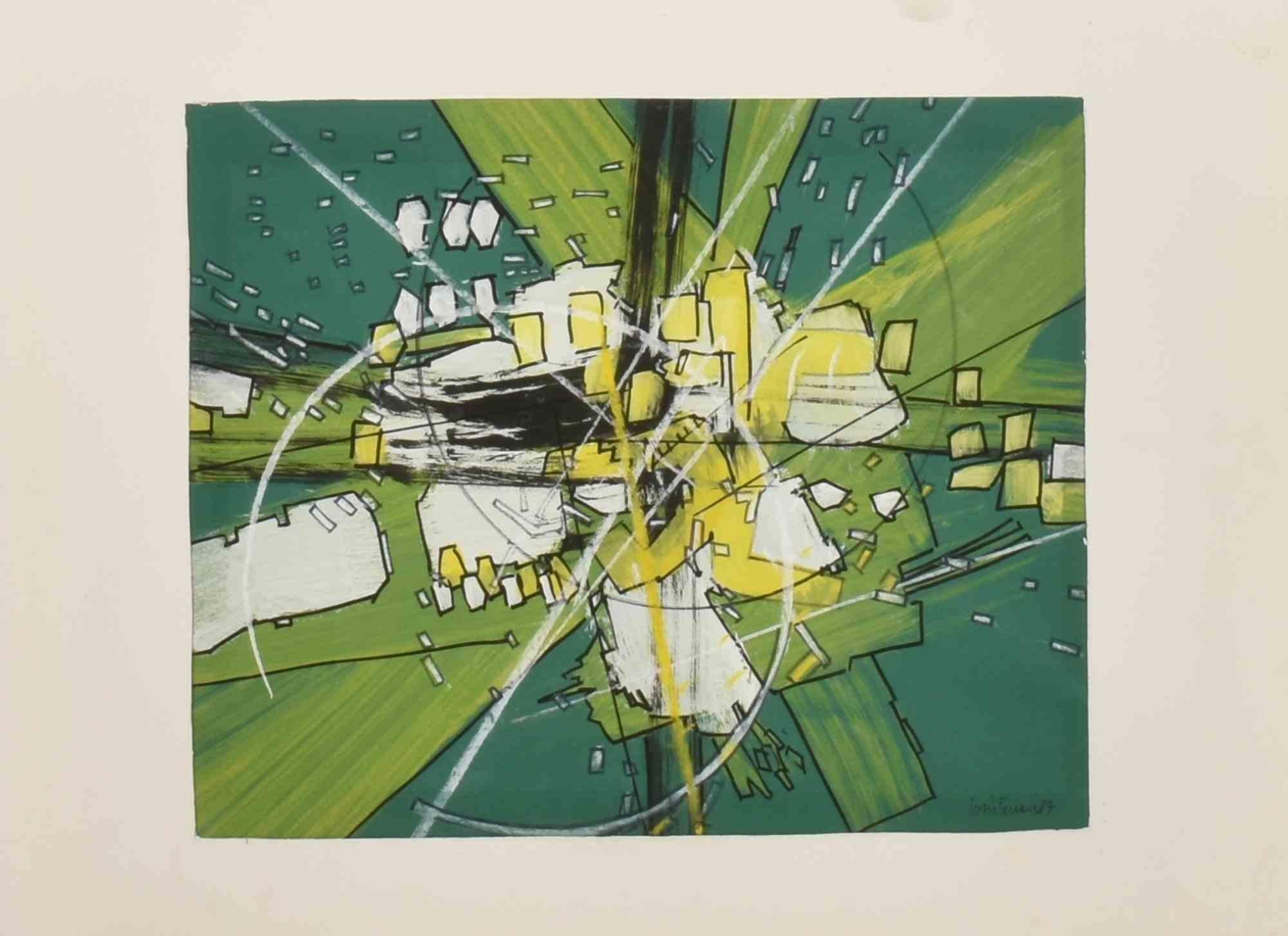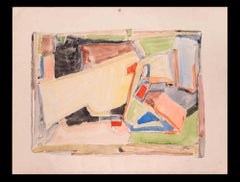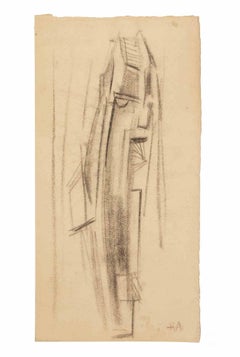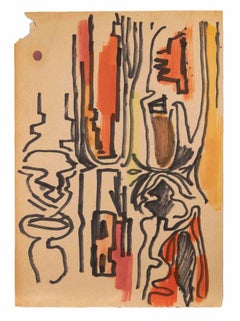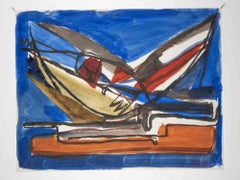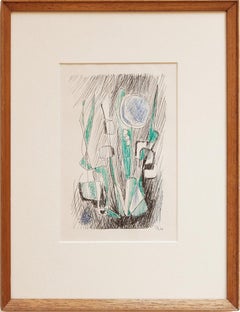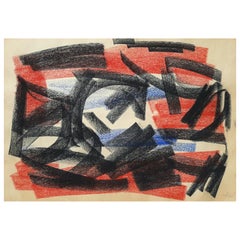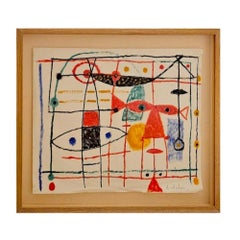Items Similar to Abstract Composition - Original Drawing by Maurice André - Mid-20th Century
Want more images or videos?
Request additional images or videos from the seller
1 of 5
Maurice AndréAbstract Composition - Original Drawing by Maurice André - Mid-20th CenturyMid-20th Century
Mid-20th Century
$449.34
£337.01
€380
CA$629.13
A$693.48
CHF 358.32
MX$8,290.02
NOK 4,507.69
SEK 4,236.59
DKK 2,895.03
About the Item
Abstract Composition is an original Ink and Watercolor drawing on paper applied realized by Maurice André in the Mid-20th Century.
Good conditions.
Hand-signed.
The artwork is depicted through soft stokes in a well-balanced composition.
- Creator:Maurice André
- Creation Year:Mid-20th Century
- Dimensions:Height: 11.03 in (28 cm)Width: 13.39 in (34 cm)Depth: 0.08 in (2 mm)
- Medium:
- Movement & Style:
- Period:
- Framing:Framing Options Available
- Condition:Insurance may be requested by customers as additional service, contact us for more information.
- Gallery Location:Roma, IT
- Reference Number:Seller: T-1328941stDibs: LU650310646742
About the Seller
4.9
Platinum Seller
Premium sellers with a 4.7+ rating and 24-hour response times
1stDibs seller since 2017
7,761 sales on 1stDibs
Typical response time: 1 hour
- ShippingRetrieving quote...Shipping from: Monaco, Monaco
- Return Policy
Authenticity Guarantee
In the unlikely event there’s an issue with an item’s authenticity, contact us within 1 year for a full refund. DetailsMoney-Back Guarantee
If your item is not as described, is damaged in transit, or does not arrive, contact us within 7 days for a full refund. Details24-Hour Cancellation
You have a 24-hour grace period in which to reconsider your purchase, with no questions asked.Vetted Professional Sellers
Our world-class sellers must adhere to strict standards for service and quality, maintaining the integrity of our listings.Price-Match Guarantee
If you find that a seller listed the same item for a lower price elsewhere, we’ll match it.Trusted Global Delivery
Our best-in-class carrier network provides specialized shipping options worldwide, including custom delivery.More From This Seller
View AllAbstract Composition - Original Drawing - Mid 20th century
Located in Roma, IT
Abstract Composition is an Original Ink and Watercolor realized by an Unknown artist of mid-20th century.
The artwork is in good condition on a cream colored cardboard.
No Signature.
Category
Mid-20th Century Abstract Abstract Drawings and Watercolors
Materials
Ink, Watercolor
Abstract Composition - Drawing By Reynold Arnould - Mid-20th Century
Located in Roma, IT
Abstract Composition is a Charcoal Drawing realized by Reynold Arnould (Le Havre 1919 - Parigi 1980).
Good condition on a yellowed paper, included a white cardboard passpartout (3...
Category
Mid-20th Century Modern Abstract Drawings and Watercolors
Materials
Charcoal
Abstract Composition - Drawing By Reynold Arnould - 1970
Located in Roma, IT
Abstract Composition is a Color Markers Drawing and Watercolour realized by Reynold Arnould (Le Havre 1919 - Paris 1980).
Good condition.
No signature.
Reynold Arnould was born ...
Category
1970s Modern Abstract Drawings and Watercolors
Materials
Paper, Permanent Marker
Abstract Composition - Drawing By Reynold Arnould - 1955
Located in Roma, IT
Abstract Composition is a Watercolor artwork realized by Reynold Arnould (Le Havre 1919 - Parigi 1980) in 1955.
Good condition included a white cardboard passpartout (35x49 cm).
H...
Category
1950s Modern Abstract Drawings and Watercolors
Materials
Paper, Watercolor
Abstract Composition - Original Drawing by Loris Ferrari - 1987
Located in Roma, IT
Abstract composition is an original contemporary artwork realized by Loris Ferrari in 1987.
Tempera and chalk on paper.
Hand signed and dated by the artist.
Category
1980s Abstract Abstract Drawings and Watercolors
Materials
Chalk, Tempera
Abstract Composition - Drawing By Reynold Arnould - 1970
Located in Roma, IT
Abstract Composition is a Watercolor artwork realized by Reynold Arnould (Le Havre 1919 - Parigi 1980) in 1970.
Good condition included a white cardboard passpartout (35x51 cm).
H...
Category
1960s Modern Abstract Drawings and Watercolors
Materials
Paper, Watercolor
You May Also Like
Original Drawing
By Thilo Maatsch
Located in London, GB
A lovely signed pen drawing in three colours by Thilo Maatsch.
Artist: Thilo Maatsch
Date: 1966
Framed size: 49 x 37.5cm
Signature: Signed in pencil: “TM 66”
Mounting: Conservation-...
Category
1960s Abstract Abstract Drawings and Watercolors
Materials
Paper, Pencil, Color Pencil
Abstract Composition Drawing by André Van Der Vossen, ca. 1950
By Andre van der Vossen
Located in AMSTERDAM, NL
This striking abstract drawing, rendered in colored pencil on paper, captures André van der Vossen’s mid-century exploration of dynamic form and vibrant color. Intersecting strokes o...
Category
20th Century Drawings
Materials
Paper
André Lanskoy - Composition - Original Etching
By André Lanskoy
Located in Collonge Bellerive, Geneve, CH
André Lanskoy - Composition - Original Etching
From Dédale
Edition: 190
Dimensions: 32 x 18 cm
This etching is from the first series of etching Lanskoy m...
Category
1960s Abstract Expressionist Abstract Prints
Materials
Etching
Untitled
By Albert Chubac
Located in PARIS, FR
Oil pastel on paper
Original work
57 x 53 x 3 cm (framed)
Category
1960s Abstract Geometric Abstract Drawings and Watercolors
Materials
Paper, Pastel
A 1940s, Mid-Century Modern Abstract Surreal Drawing by Hananiah Harari
By Hananiah Harari
Located in Chicago, IL
A Striking, 1940s Modern Surrealist Abstract Drawing, "Magnetic Prisms", by Notable New York Avant Garde Artist, Hannah Harari (Am. 1912-2000). Graphite on paper, dating from 1948....
Category
Mid-20th Century Abstract Abstract Drawings and Watercolors
Materials
Paper, Graphite
Abstract American Modernism Mid-Century WPA Era Drawing Woodstock 20th Century
By Konrad Cramer
Located in New York, NY
Abstract American Modernism Mid-Century WPA Era Drawing Woodstock 20th Century, Sight size is 16 x 12 inches.
Konrad Cramer (1888-1963)
Abstract
Mixed media on paper
17 x 12 inches
...
Category
1930s Abstract Abstract Drawings and Watercolors
Materials
Paper, Ink, Watercolor
More Ways To Browse
Ink Drawing On Paper Modern Abstract
Maurice Andre
Original Abstract Pencil Drawings
Abstract Painting By Andre
Blue Watercolor
Series Of Drawings
Ink Drawing On Paper Modern Abstract
Colored Pencil Art
Birch Bark
Wisconsin Painting
Blue Ink Drawing
Line Drawing Art
Small Watercolor Paintings
Juan Bautista
Abstract Figure Drawing
Watercolour Paintings Gold Frame
Black Line Drawings
Parimah Avani
